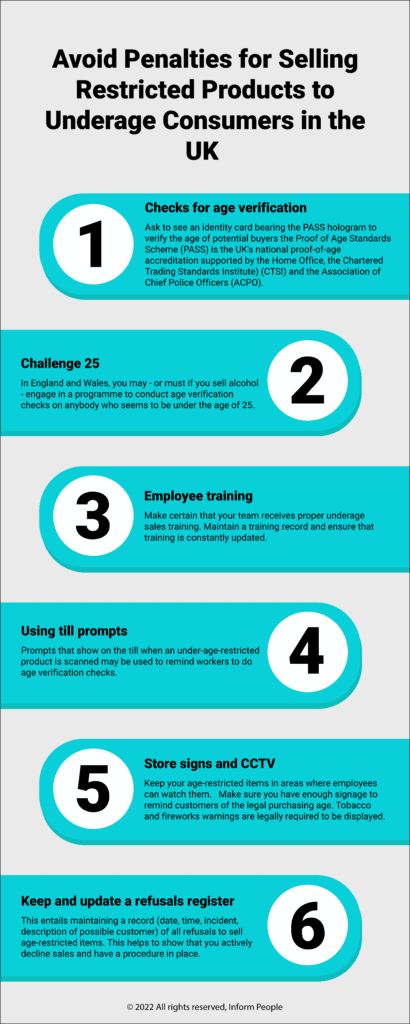What products and services are age-restricted?
The government has identified the selling of restricted products to minors as a societal issue. These laws were put in place to protect the public, and when violated, it becomes a problem for the criminal justice system.
When selling certain age-restricted items, retailers are obliged to show warnings and signs, and they are also obligated to ask young individuals for ID/proof of age. Penalties for selling age-limited items to minors vary based on the product and the circumstances of the sale, so be sure you understand which products and services are restricted in the UK.
Among these products are:
- Aerosol Spray Paints
- Alcohol
- Solvents and Cigarette Lighter Refills
- Air Weapons, Crossbows, etc
- Fireworks
- Knives and Bladed Items
- Sunbeds
- Tobacco and Nicotine-inhaling Products
- Video Games, and Recording for Sale and Hire
Selling age-restricted products online
Selling age-restricted products online brings unique challenges. Retailers must take precautions to avoid selling to minors. This guide applies to any product that has a sales age restriction, such as:
- Alcohol
- Fireworks
- Nicotine-inhaling Products (including e-cigarettes/vapes or refills)
- Spray Paint
- Tobacco
- Video Recording and Games

